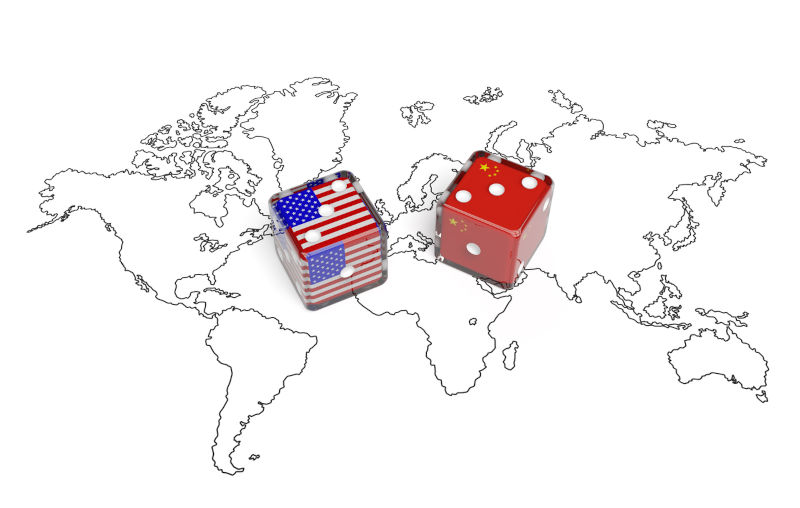Layered perversion of Australia's defence policy
August 8, 2025
An amazing thing has happened. Our taxpayer-funded think-tank Australian Strategic Policy Institute (ASPI) has commissioned analysis by Robert Macklin which shows that the public debate on Australia’s defence has been biased.
The public has been fed grievous underestimates of Australia’s defence capability, because discussion of our potent air capabilities has been sidelined by myopic focus on submarines. Macklin’s message is that those shrieking for Australia to increase its defence spending (ASPI itself, amongst many others) should be discounted.
Macklin has concluded that “we have never been better able to defend Australia from the air in our entire existence”. He speculates that our airstrike is capable even to Taiwan, yet noting that planning for conflict with China is “foolishness personified”. What a breath of fresh air, from a serious author coming to Australia’s security without prejudice or self-interest. Imagine the panic in Australia’s squillion-dollar “defence industry“ racket.
Within a week ASPI had trotted out the hoary pen of Paul Dibb who, four decades ago as a consultant to defence minister Kim Beazley, delivered a report founded on intellectual property from the Defence Department which has been dined upon ever since. Predictably Dibb attempts to diminish Macklin’s view arguing for “significant and sustained increases” in defence spending. Dibb sets up a straw man that it is “fashionable in Australia to assert that we must now leave our alliance with the United States". To be sure there is change afoot in Australians’ thinking about the US. Increasingly we recoil from its planned and perilous provocation of China leading to a false flag over Taiwan, drawing us into a devastating conflict. That is the reality which ASPI and its goons are concealing from Australians, on behalf of the shadowy financial beneficiaries of the riches in war preparation.
Saying to the Americans that we wish to have no part in its military strategy against China would not violate ANZUS. We have done similar things before. It would take an attack by China on Australian or US territory for ANZUS to be invoked – the opposite of what America is planning for. Dibb should know that.
On capability, Dibb challenges Macklin by strutting his frequent advice to ministers of “the reality that the most we could sustain on operations, even for a short time, would be a couple of battalions, two submarines and a continuous combat air patrol, the latter to be maintained for only a few days”. Which is only faintly relevant, as Australia has developed exquisite systems which render concepts such as “continuous air combat patrol” arcane.
Cutely, Dibb pumps up China as a threat – “a more assertive, if not belligerent, China is on the prowl ever closer to Australia “. Murdochian_._ Then he offers a seemingly innovative prescription for the future: “So, how might Australia turn towards a more self-reliant defence posture while still maintaining an alliance with the US? My central policy guideline is to demonstrate to Washington that, short of a large attack on Australia by a major power, we would be able to defend ourselves.” Indeed. This is precisely the understanding which Australia reached with the US more than 50 years ago, and was the bedrock of the Defence White Paper in 1976. It was the product of a few fine minds in the Department of Defence, and astute politicians of both colours – with the interest of Australia being the only consideration. Maybe it’s time for Dibb’s benefactors to wonder about value for money.
Distasteful as this daily twisting of reality for profit is, it pales in comparison with the debasement of policy formulation at the highest level. Appointed in 2022, Defence Minister Richard Marles has engineered structures which sideline his department on strategic policy development, the critical instrument for setting priorities within almost $60 billion of Australian taxpayer’s money annually. Instead, Marles has relied upon US-sponsored organisations and US personnel to shape our defence policy. In particular, the influence of the United States Study Centre at Sydney University has been ubiquitous, the centrepiece being USSC having “co-lead” of the 2023 Defence Strategic Review. In releasing the Review, the minister was silent about the circumvention of the department’s role and US influence in its preparation.
However, USSC is not just involved in high-level policy setting but also in implementation. Together with various Australian National University centres, it regularly stages closed-door US-Australia Indo-Pacific Deterrence Dialogue attended by military leaders, government officials, diplomats and researchers from both nations. The upcoming event was to cover which roles and missions Australian and US forces will have in a conflict with China over Taiwan. Which is what the shadow Defence spokesman Andrew Hastie says he wants to know about. Unexpectedly the event was cancelled last week due to withdrawal of Pentagon officials, to be met with indignant moanings because of “the lack of strategic warning for such a major conflict”.
The evidence is sickeningly convincing that Australia’s defence minister, almost from his first day, has drawn this nation into intimate planning for conflict with China, by shaping Australia’s defence policy directives through US agents in plain sight within Sydney University. Our defence resources have been squandered on US priorities of little value which are sometimes damaging to Australia. This has grossly affected our security and our national finances. The question of defence spending is not of how much extra is needed, but of what we can achieve with what we have now when it’s directed to our own priorities exclusively.
The views expressed in this article may or may not reflect those of Pearls and Irritations.


